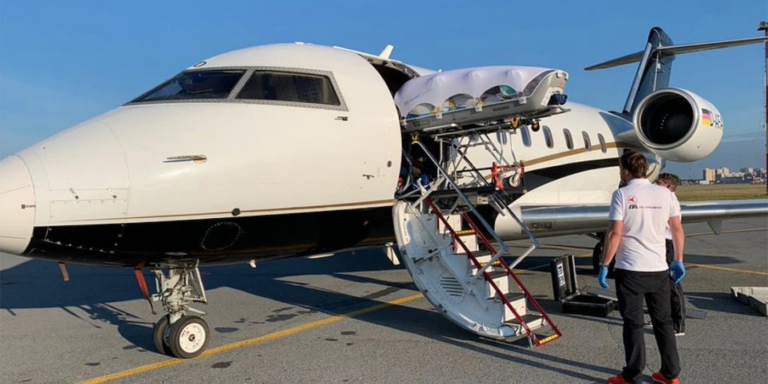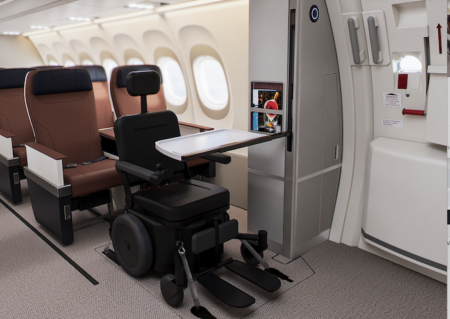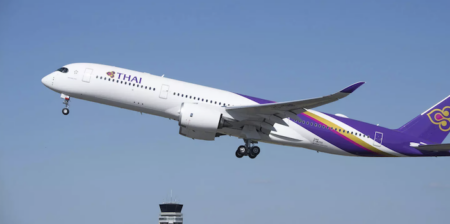FAI has obtained supplementary type certification (STC) for the EpiShuttle patient transfer system on the Bombardier CL-600 aircraft type after passing tests to assess flammability, rapid decompression, and patient evacuation. FAI says the tests were was passed “without any complaints or remarks”.
FAI has installed the EpiShuttle in the Bombardier Challenger 604 on a Spectrum Aeromed MedBase with a fixed adaption to a Spectrum Aeromed Cargo Stretcher. This installation meant that the EpiShuttle could no longer considered to be ‘loose equipment’ in the cabin. Thus FAI wanted to obtain an STC for the CL-600-2B16 aircraft fitted with an EpiShuttle.
FAI worked with EASA (European Aviation Safety Agency) and a development company to define the requirements for the STC and to develop the necessary test procedures.

The EpiShuttle had to undergo three different tests during the certification process: flammability tests, rapid decompression tests and patient evacuation tests. FAI Air Ambulance invested a total of €57,000 in the individual test procedures.
The flammability test examined how easily the EpiShuttle’s materials ignited, how quickly they burned and how they reacted when burned. The tests showed that there was neither combustion, smelting or drop formation in the test objects.
The engineering team then tested how the EpiShuttle would behave in the event of a sudden drop in pressure – a so-called rapid decompression test. In the event of a sudden drop in pressure in the aircraft, it must be demonstrated that all components can withstand the resultant forces in order to avoid contamination of the environment. The behavior of the EpiShuttle was tested and simulated in a pressure chamber in an approved test laboratory. FAI says the test showed no damage or functional restrictions on the components of the EpiShuttle or its attachments.
The last procedure the device had to undergo was a patient evacuation test. According to specifications, it has to be possible to evacuate a patient within 90 seconds in an emergency. During the test the patient was evacuated by FAI employees within 56 seconds.
After all tests were completed all the test, EASA concluded that it met all the requirements and without any complaints. The certification paves the way for STCs on the CL-600 on other continents, as it shows that it is possible for other companies and aircraft to obtain an STC, according to Ellen Cathrine Andersen, CEO of EpiGuard.





